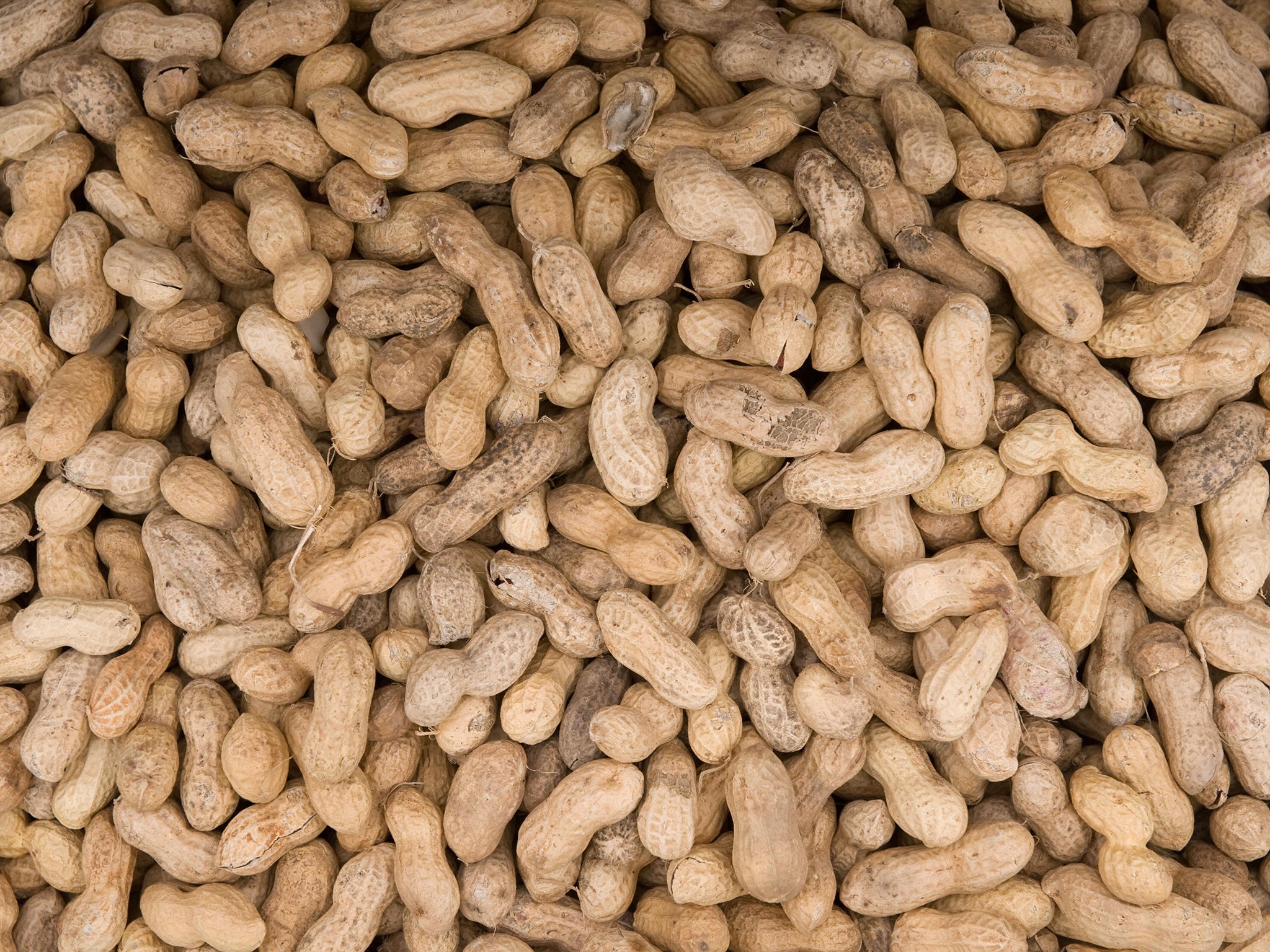Peanut allergy sufferers 'on alert' as walnut crops fail
Expert fears the fraudulent substitution of peanuts in food will kill people

Your support helps us to tell the story
From reproductive rights to climate change to Big Tech, The Independent is on the ground when the story is developing. Whether it's investigating the financials of Elon Musk's pro-Trump PAC or producing our latest documentary, 'The A Word', which shines a light on the American women fighting for reproductive rights, we know how important it is to parse out the facts from the messaging.
At such a critical moment in US history, we need reporters on the ground. Your donation allows us to keep sending journalists to speak to both sides of the story.
The Independent is trusted by Americans across the entire political spectrum. And unlike many other quality news outlets, we choose not to lock Americans out of our reporting and analysis with paywalls. We believe quality journalism should be available to everyone, paid for by those who can afford it.
Your support makes all the difference.Britain’s half a million peanut allergy sufferers have been put on high alert after a series of walnut crop failures have increased the prospect of potentially-deadly peanuts being used in food instead.
Professor Chris Elliott, who led the government’s inquiry into the horsemeat scandal, said walnuts had become his latest major food-fraud concern and advised people to be extra vigilant when eating food claiming to contain them.
“There have been a lot of crop failures in walnuts around the world. I am worried we will see the substitution of peanuts for walnuts, which can kill people,” Professor Elliott, of Queen’s University Belfast, told The Independent.
“It’s easy to tell the difference between a peanut and a walnut on their own but when they are processed it is really difficult to tell. For example whether it’s walnut flour or peanut flour,” he added.
Professor Elliott said it was the job of every food provider to do rigorous auditing and tests to ensure peanuts haven’t been substituted for walnuts.
“Everyone has to take responsibility, its unacceptable to accept what it says on the label. It’s something we all need to be aware of and people need to be vigilant,” he said.
Professor Elliott said he is aware of one case in a UK takeaway restaurant where he believes peanut substitution caused a death and suspects several people in the country die this way each year – a number he fears will increase over the next year or two due as poor walnut harvests encourage the substitution of the much cheaper and more plentiful peanuts.
Walnut prices have jumped by 50 per cent in the past month in Kashmir after heavy rains decimated crops in the region – a major supplier of the nut – just before they were due to be harvested. Crops in the Galiyat region of Pakistan have also been ruined as well as in Argentina, where prices doubled in July after frosts and rain spoilt the harvest. The ongoing drought in Californian has also threatened yields.
There is nothing new about substituting expensive or scarce food ingredients with cheaper, or more abundant ones, such as horse for beef or lamb. Professor Elliott’s recently published report identified pomegranates as an example of a food that appears to be increasingly substituted by cheaper fruits, such as grapefruit or sugary water.
He based his suspicion on the rapid rise in pomegranate products, which appear to outstrip the rise in trees needed to support that growth as its growing status as a “superfruit” fuelled demand.
“About 400 beverages with the taste of pomegranate were introduced to the market globally in 2012. In addition producers have quickly introduced pomegranate vinegar, liqueurs and syrups and flavourings for confectionary,” the report stated.
“Pomegranate trees take 2-3 years after planting before they produce fruit, so consumers might expect retailers to be active in testing authenticity as they expand the range and volume of goods they offer. Thus supply and demand, a basic concept in the market place, must be considered a potential trigger for fraud,” the report added. The report also highlighted saffron, manuka honey, extra virgin olive oil as among those items most likely to “contain substitutions, be mislabelled or adulterated”.
Join our commenting forum
Join thought-provoking conversations, follow other Independent readers and see their replies
Comments